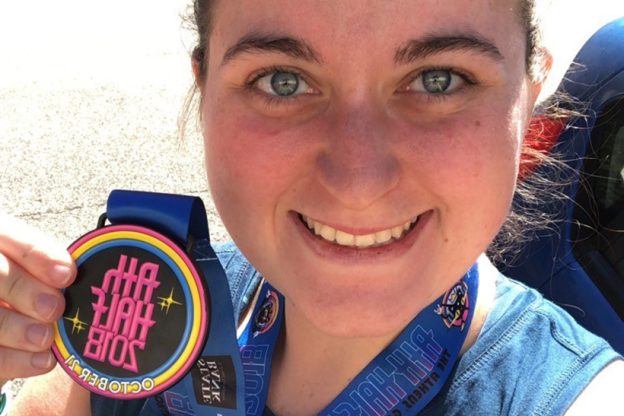
Five questions for … Dr. Emily Rayens
Emily Rayens, PhD, MPH, is a postdoctoral research fellow in the Division of Epidemiologic Research of the Department of Research & Evaluation. Her research interests include infectious diseases and vaccine efficacy and safety. She began her fellowship at Kaiser Permanente in 2023, but it is her third year as a postdoctoral fellow. She was previously a postdoctoral fellow in the Center for Vaccines and Immunology at the University of Georgia. She worked concurrently as an epidemiologist with the Northeast Georgia Health District as part of a COVID-19 response team and as a postdoctoral fellow in a research lab at the University of Georgia. She was born and raised in Lexington, Kentucky, and currently lives in Pasadena.
What inspired you to pursue research?
I’ve always asked too many questions (particularly “why?”), so pursuing a career in research actually wasn’t much of one. Understanding human disease has always been my primary interest, although my research experiences have progressively moved in the direction of patient-centered research. This translates to research areas that evolved from quantitative genetics in Drosophila models to development of novel vaccine candidates to analysis of national datasets for disease burdens. I’m sure that my research interests will continue to expand during my time with Research & Evaluation.
Why did you come to the Department of Research & Evaluation to pursue your postdoctoral training?
While my doctoral training was focused on vaccine development and infectious disease pathogenesis, it was primarily through the lens of a wet lab, including bench and animal work. After graduation, I sought out complementary post-doctoral programs that would support my interest in public health and infectious disease epidemiology. I was excited about the projects and staff supported by Research & Evaluation, as well as the recent publications in infectious disease and vaccine evaluation.
How do you think starting a new position in the midst of a global pandemic has changed your experience?
Overall, the COVID-19 pandemic has reinforced the importance of public health engagement and research, particularly in the fields of infectious disease and vaccine development. I’ve found that many digital tools that have been embraced alongside the rise of remote work have not only promoted worker flexibility but also have provided more secure platforms for collaborations. I had a great experience being able to interview remotely, without worrying about travel, and the flexibility afforded by this position is fantastic.
What research are you currently working on that you are most excited about?
I am starting work on several exciting projects that involve vaccine effectiveness and secondary effects of vaccination. However, I am particularly excited to build upon my doctoral research in mycotic diseases and report on the burden and impact of fungal infections, especially in the context of emerging and antimicrobial-resistant species. Fungal infections have historically been an understudied area of infectious disease, both in the clinic and in the lab, so new research in this field is crucial.
What do you like to do in your spare time?
I love spending time outside, especially running, and I am so far enjoying the relative lack of humidity in Los Angeles compared to that in Athens, Georgia. Hobby-wise, one of my favorite creative outlets is in baking; I actually compete in state and national fair competitions and have won 50 ribbons in the past 2 years. I also have a background as a classically trained musician and participate in several community bands and orchestras as a performer (flute/piccolo, percussion) and conductor.





